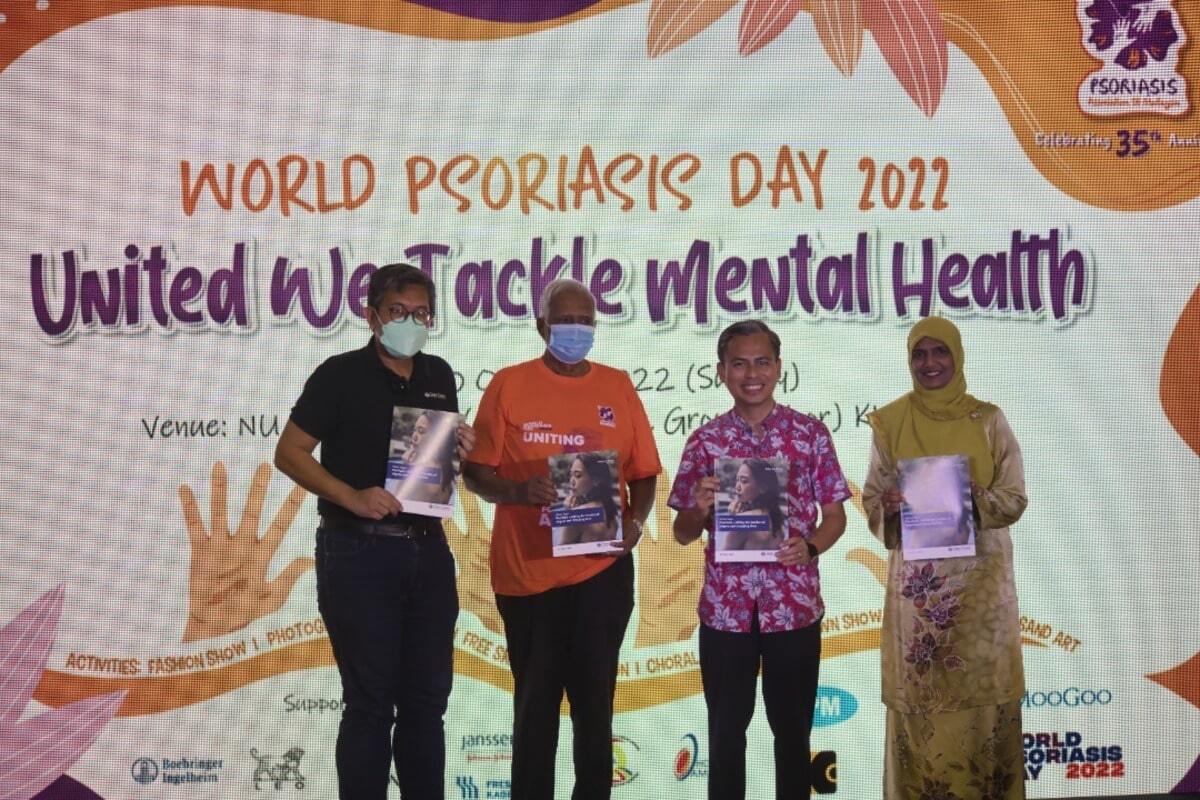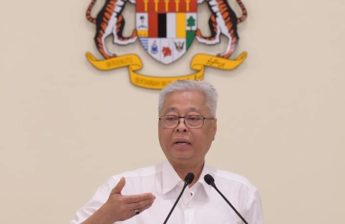KUALA LUMPUR, Oct 31 — Financial burden and ineffective treatment represent the biggest challenges when it comes to treating psoriasis in Malaysia, according to a recent survey conducted by the International Federation of Psoriasis Associations (IFPA).
The results of the survey, which was conducted across Malaysia, South Korea, and Hong Kong in August 2022, were released yesterday in conjunction with the World Psoriasis Day 2022 (WPD) celebration organised by the Psoriasis Association of Malaysia (PAM) at NU Sentral in Kuala Lumpur.
More than half (53 per cent) of Malaysian respondents identified financial burden due to treatment and medication as a key challenge in treatment, followed by ineffective treatment (49 per cent), and inconvenient or unacceptable waiting time (39 per cent).
Six of 10 Malaysian respondents, or 61 per cent, said they faced financial burden due to treatment cost, while 21 per cent said they gave up or reduced treatment or borrowed money for treatment.
“The patient survey findings are in line with the feedback we receive from our members. Among our members who have been affected seriously with widespread skin lesions or autoimmune arthritis symptoms — a category of medicine called biologics are able to provide adequate relief for the majority.
“However, this therapy is not a cure and patients need ongoing treatment. Moreover, biologics treatment is costly, estimated to vary between RM30,000 to RM50,000 annually,” said PAM president Eugene Cross in a press statement released by PAM yesterday.
Psoriasis is a debilitating auto-immune and chronic inflammatory disease that affects the skin and causes a rash to form with itchy, scaly patches. It can affect the skin and joints, with the knees, elbows, trunk, and scalp being common areas of infection.
It is a common, long-term chronic disease with no cure. It can be painful, interfere with sleep, and make it hard to concentrate.
When it comes to funding, 61 per cent of participants across Malaysia, South Korea, and Hong Kong in the IFPA poll stated that an absence of insurance coverage, be it private or public, caused them financial hardships as the cost of treatment is high.
In Malaysia, the cost of treatment has only allowed 14 per cent of survey participants to access the latest psoriasis treatment – biologics. This proportion is considerably lower than South Korea and Hong Kong at 37 per cent and 55 per cent respectively.
“These findings underscore the urgent need for improved access to funding for psoriatic patients in this country, as well as the need to classify psoriasis and psoriatic arthritis as critical illnesses under both public and private health insurance schemes,” PAM said in its release.
The IFPA psoriasis patient survey comprised 635 respondents from South Korea, Hong Kong and Malaysia, and out of the 635 patients, 124 of them were from Malaysia.
Malaysia’s National Registry recorded a total of about 23,800 patients with psoriasis from October 2007 to December 2019. However, it is broadly estimated that the disease affects around 300,000 Malaysians.
This year’s WPD theme is “United We Tackle Mental Health”, since mental health is increasingly being recognised as a significant part of living with psoriatic disease, PAM said.
“The public may not realise that many psoriasis patients are not only affected physically, emotional scarring is common among patients,” PAM deputy president Dr K. Thiruchelvam said in the PAM release.
“Combining the mental health aspect, the financial aspect and the physical symptoms — all add up to a patient’s heavy burden. Much needs to be done for psoriasis patients in Malaysia.
“PAM hopes to continue finding long-term solutions with the relevant health players to address the plight of psoriasis patients in our country.”
At the officiation of the WPD 2022 event yesterday, Fahmi Fadzil, who is defending his Lembah Pantai seat in the 15th general election, shared a cross-sectional study conducted in 2019 at the dermatology clinic of Sultanah Bahiyah Hospital in Alor Setar, Kedah, among 174 patients with psoriasis.
The study found that 48 per cent had anxiety disorders, 16.9 per cent had anxiety symptoms, and 8.5 per cent were depressed. It concluded that there is a close association between psoriasis and mental health.
Fahmi emphasised the importance of unity when it came to addressing mental health. Referencing the Covid-19 pandemic, he highlighted the need for unity of action between the “government, industry and society” — a whole-of-nation approach.
“I am emphasising on the importance of being united not only in the context of the battle against Covid-19, but also in addressing the challenges faced by psoriatic patients in their daily lives,” said Fahmi in a speech at the event.
He also condemned the stigmatisation of psoriasis, stating that it was one of the reasons why patients in Malaysia fail to seek treatment for this debilitating illness.
“Despite recognition by the World Health Organisation as a chronic condition, getting appropriate care and treatment for people with psoriasis remains challenging. Due to inaccurate diagnosis, gaps in health services, and unmet treatment needs, patients face a lifetime of suffering and disability.
“To make matters worse, many people, due to social stigma and other personal reasons, have not come forward to seek treatment for their condition.”
Fahmi received the Galen Centre for Health and Social Policy’s White Paper on psoriasis from the think tank’s chief executive, Azrul Mohd Khalib, at the event.
“I am delighted that Saudara Azrul is here with us this afternoon. His Galen Centre for Health and Social Policy has produced a path-breaking report on Psoriasis – Lifting The Burden Of Stigma And Changing Lives,” said the MP hopeful from PKR.
“This report asserts, among others, that with sufficient resources and investments to manage psoriasis, suffering and stigma can be reduced, and lives changed for the better. I believe, excepting some updating of figures, the recommendations of this White Paper on Psoriasis still remain relevant today as they were when the report was first launched two years ago.”








